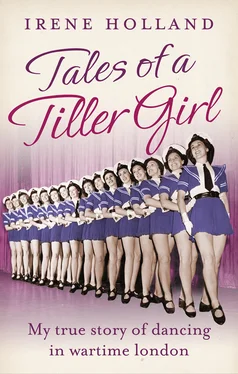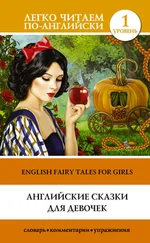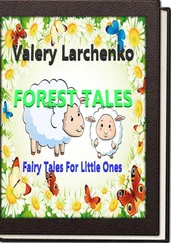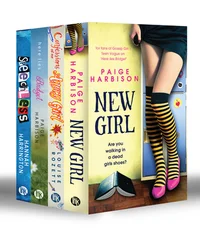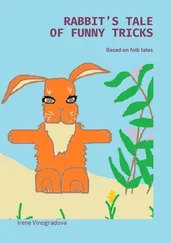‘Why are Gaga and Papa being horrid to you?’ I asked her.
‘Your grandparents didn’t like it when I married Daddy, as he believed in different things to them,’ she explained.
My grandparents were right-wing Conservatives and extremely religious, which was the norm in those days, while my father was the complete opposite. He was a very left-wing socialist and an atheist. In fact, when he died he insisted that there was no funeral or flowers and he was buried in an unmarked grave somewhere in London. He used to speak at Speakers’ Corner in Hyde Park and was one of the founder members of the Socialist Party of Great Britain. When he and my mother had gone off to the register office to get married in secret when she was eighteen, Mum’s family had practically disowned her.
‘But I loved your father and it doesn’t matter what they think,’ said Mum, giving me a kiss on the forehead.
I could see she was holding back the tears but I never once saw her cry in front of me. She was very loving, and was always kissing and cuddling me. I think in a way she needed me as much as I needed her.
My mother was a very proud person, so I could tell it was humiliating for her to have to go cap in hand to her parents and to have absolutely nothing.
One morning she was busy cleaning and tidying up our room.
‘I’m getting everything spick and span as the means test people are coming today,’ she told me.
I wasn’t sure what exactly that meant, but half an hour later a stern-looking woman in a suit came up to the attic. She opened up the larder door and had a good look inside.
‘As you can see there’s nothing in there,’ my mother told her frostily.
I could tell that Mum was very annoyed to have to ask for help.
‘What’s that lady doing?’ I said.
‘She’s checking to see how much food we’ve got,’ she told me. ‘Or should I say how little.’
I was even put out to work to try to help Mum make ends meet. I remember we were walking to the shop one day when a woman stopped my mother in the street.
‘Oh, what a pretty little thing,’ she said to me. ‘Look at those great big brown eyes.’
I was such a show-off, and even as a toddler I knew how to play to a crowd. I opened my eyes even wider, fluttered my eyelashes and flashed her my best and biggest smile.
‘I know a photographer looking for child models,’ she told Mum. ‘I’m sure he would love your daughter to pose for him.’
The photographer in question turned out to be a very famous man called Marcus Adams. He was a renowned children’s photographer who had taken pictures of King George V’s six children and all of the royal family. Although I couldn’t have been more than three, I remember sitting there in his studio in a little woollen hat and jacket. I was paid three guineas a time, which was quite a lot in those days, and Mum was given copies of the shots, which were very beautiful, pale, sepia photographs printed on soft paper.
Things at home continued to be frosty between Mum and my grandparents. She was allowed downstairs to cook, but then she would always bring our food back up to the attic for us to eat at our little table. We’d never have a meal with them.
My mother was a good cook and we always had lots of fresh vegetables to disguise the fact we couldn’t afford much meat. We’d have our main meal of the day at lunchtime and she’d rustle up pies and stews, apple tarts and cakes. I liked having a boiled egg for tea, which she’d bring up to the attic for me on a silver tray.
Looking back, it was a very peculiar situation. Here were two opposing ideas of life – my mother’s and my grandparents’ – and then me in the middle seeing both sides of it. My grandparents were all right to me and Raymond, and I got on with my grandfather quite well. He used to be a French horn player in the Grenadier Guards, and one afternoon he started stomping up and down the hallway.
‘Come on, Rene,’ he bellowed. ‘Let’s pretend we’re in the Grenadier Guards.’
I giggled as he marched up and down pretending that he was blowing his French horn.
‘Come here and I’ll tell you a story about when I was little,’ he said.
He told me how he grew up in Devon with his father. He’d hated his stepmother, so he ran away from home at the age of fourteen and pretended he was sixteen so he could join the army. He’d never fought but had become a very good French horn player and afterwards had played in the pits in London orchestras.
‘I played at Buckingham Palace for Queen Victoria’s birthday, you know,’ he told me.
‘You met the Queen?’ I gasped. ‘What was she like?’
‘Oh, dreadful woman,’ he grumbled.
‘Why’s that, Papa?’
‘She used to come out on the balcony all in black after her husband had died, and even if it was pouring with rain we’d have to stand there and play for hours. Sometimes she wouldn’t even bother coming out and would just have a quick look out of her bedroom window.’
He also described how he’d played for two very famous dancers, Anna Pavlova and Isadora Duncan.
‘Oh, don’t get me started on that silly Duncan woman,’ he told me. ‘Did you know she strangled herself with her own scarf?’
‘What do you mean?’ I asked.
I listened, wide-eyed, as he recounted the story of how Isadora Duncan was a real lady and used to love wearing these long, floaty scarves.
‘She lived in France, and she was coming over a bridge one day and her long scarf got caught in the axle of the convertible car that she was in and it strangled her. Broke her neck right there on the spot.’
My grandmother was a cold, unemotional woman but she was a fantastic seamstress and dressmaker, and I’d sit there for ages and watch her work. One day she was making a beautiful blue gown that had silk ribbons from the waist down with an underskirt underneath, and at the end of every ribbon there was a silver bell. It was the most beautiful dress that I’d ever seen and I was fascinated.
‘Who’s that dress for, Gaga?’ I asked her.
‘This one is for a Russian princess,’ she said.
It took her hours to sew all the tiny bells on the bottom.
In the front room she had a beautiful old mahogany sewing desk with her Singer sewing machine on the top and dozens of small drawers underneath that were filled with ribbons, beads and different coloured silks. I loved rummaging round in them and touching all of the treasures that were inside.
‘Can I help you tidy up your bits and bobs, Gaga?’ I asked her.
‘As long as you’re careful, Rene,’ she told me. ‘Don’t go pricking your fingers on any needles.’
My biggest wish was for her to make me a princess gown all of my very own. On my fourth birthday she made me a beautiful party dress. It was green cotton with a little collar, puff sleeves and a big bow on the back, and it had frills from the waist down. She even made a matching one for my favourite doll Audrey.
My mum was the eldest of seven children, although two of her brothers had died as toddlers – one had got diphtheria and the other had fallen into the Thames and drowned. It used to cause no end of arguments between my grandparents, as my grandfather could never remember the names of the two that had died and my grandmother used to get really annoyed with him about it.
‘Imagine not remembering your own children,’ she used to say to me. ‘How could he forget his own flesh and blood?’
Mum wasn’t close to her surviving sisters Violet and Winnie or her brothers Arthur and Harry, and they didn’t treat her very nicely. They were all very snobby and wealthy, and they looked on her as a failure when she came back to live with her parents, even though she was a widow. That side of it was all kept from me when I was small, but I began to realise it more as I got older. They didn’t like her choice of husband and the way, in their opinion, she had completely changed her views.
Читать дальше
